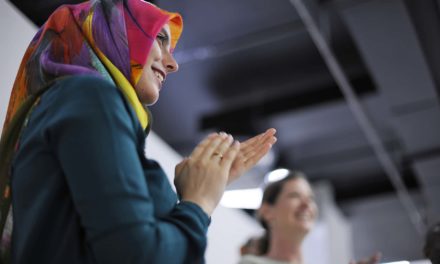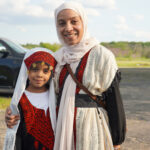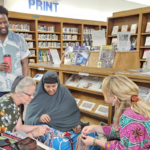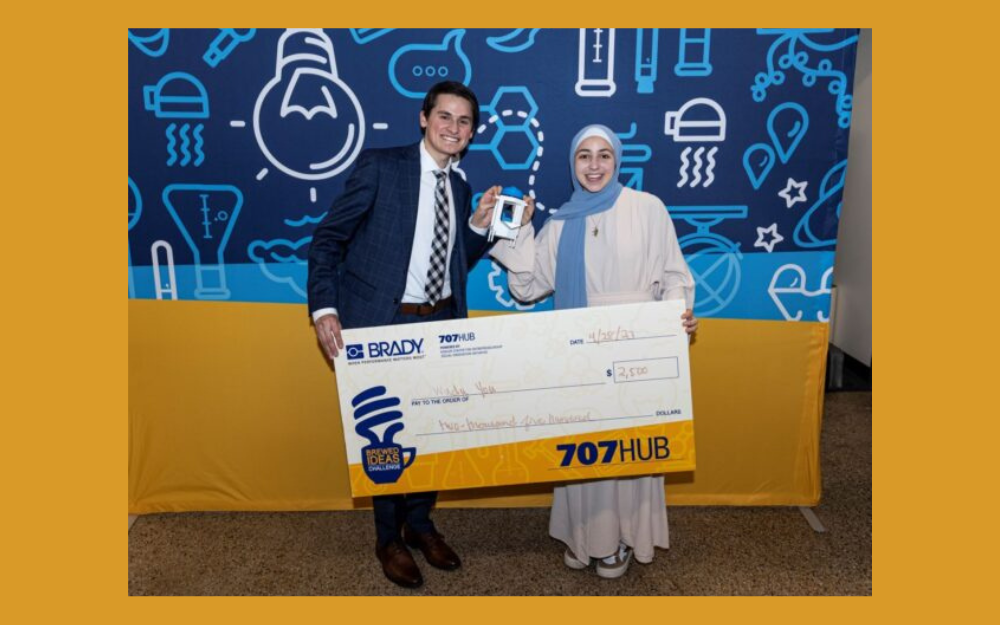
Photos courtesy of Marquette Today
Marquette University seniors, Jack Killian (left) and Leen Mortada (right) were awarded 2nd place in the Brewer Ideas Challenge contest for their Wudu You invention.
For some college students, moving into the dorms is an exciting time to meet new faces and explore the sights of the new city they will reside in for the coming years. However, for some Muslim students, a lingering question remains: How can they ensure a seamless wudu experience in an unfamiliar setting?
Leen Mortada and Jack Killian decided to tackle this question last year. They were inspired to create Wudu You after speaking with a Muslim student at Marquette University about her difficulties making wudu in the dorms.
“The biggest part of our product is its ease of portability, size and functionality. It is about four feet tall and that is very helpful because you can bring it up to your face and down to your feet. It is easily movable because it is not the installation of water, rather you have to fill it up every now and then,” Leen Mortada, a student at Marquette University and co-founder of Wudu You, said.
The product unscrews at the top to fill the clean water tank, and the sides open up to perform the necessary actions within wudu. The Wudu You moves up and down to allow one to wash one’s arms and feet, ensuring a comfortable experience. When the water is used, it drains to the bottom of the device, where it is collected to be discarded later.
“The water lasts about two days, and there will be a lock on the handle so the water will not just fall up and down. There also will be a mat provided to catch any water that could fall,” Mortada said.
To ensure that Mortada and Killian’s product considered the needs of Muslims on college campuses and in the workforce, they conducted extensive research and user feedback in developing Wudu You.
“We used a poll and survey on Marquette’s campus and the greater Milwaukee community which I sent out. The Marquette campus’ poll was to figure out how many times people made wudu on campus, what they liked about the ablution stations, what were the things they didn’t, and what they would like in a wudu station to gauge what people were looking for which was privacy, cleanliness and ease of use,” Mortada said.
Universities such as Marquette University and the University of Miami have installed ablution stations to make wudu more accessible and cleaner.
To better understand what people besides students want within the product, they also surveyed the Muslim community within the surrounding Milwaukee area. They polled on what individuals would pay for the product and their interest in having a product like Wudu You accessible. They found that many people wanted to see the product demonstration before giving proper feedback.
In order to make sure the product is accessible, they have designed it to be portable and not require electricity. The team envisions that future iterations will enhance further accessibility.
To ensure hygiene and longevity, regular water refills and drainage are necessary. Occasional washing is also recommended to maintain the product’s cleanliness.
“Filling up and draining the water every other day is key to making sure that it is clean every time and that there is no excess water in the drainage area,” Mortada said.
One of the biggest challenges Mortada and Killian faced was funding, connections and building out the idea. The team chose to seek investment from the 707 Hub, primarily through the Brewed Ideas Challenge and The Dorm Fund.
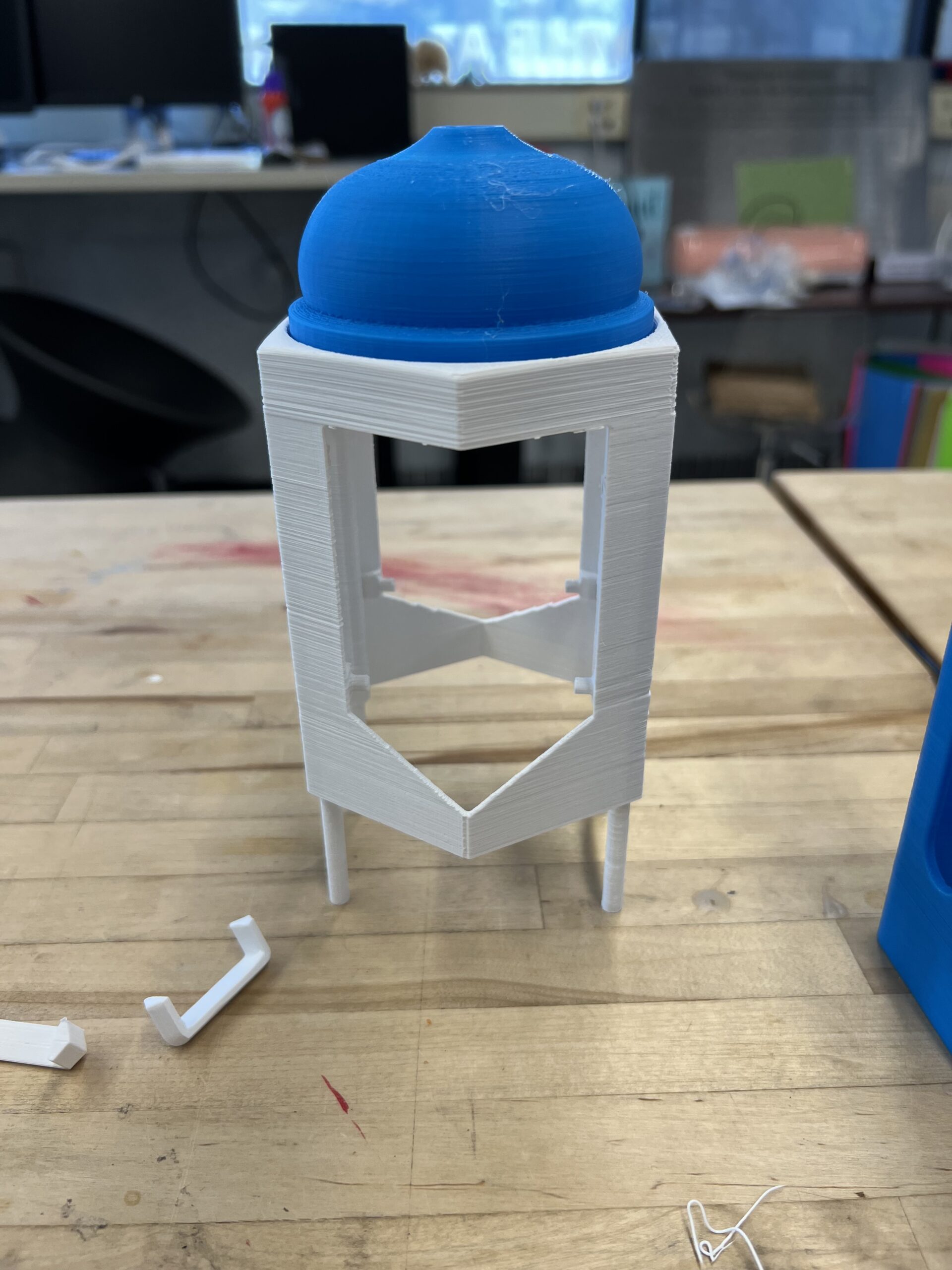
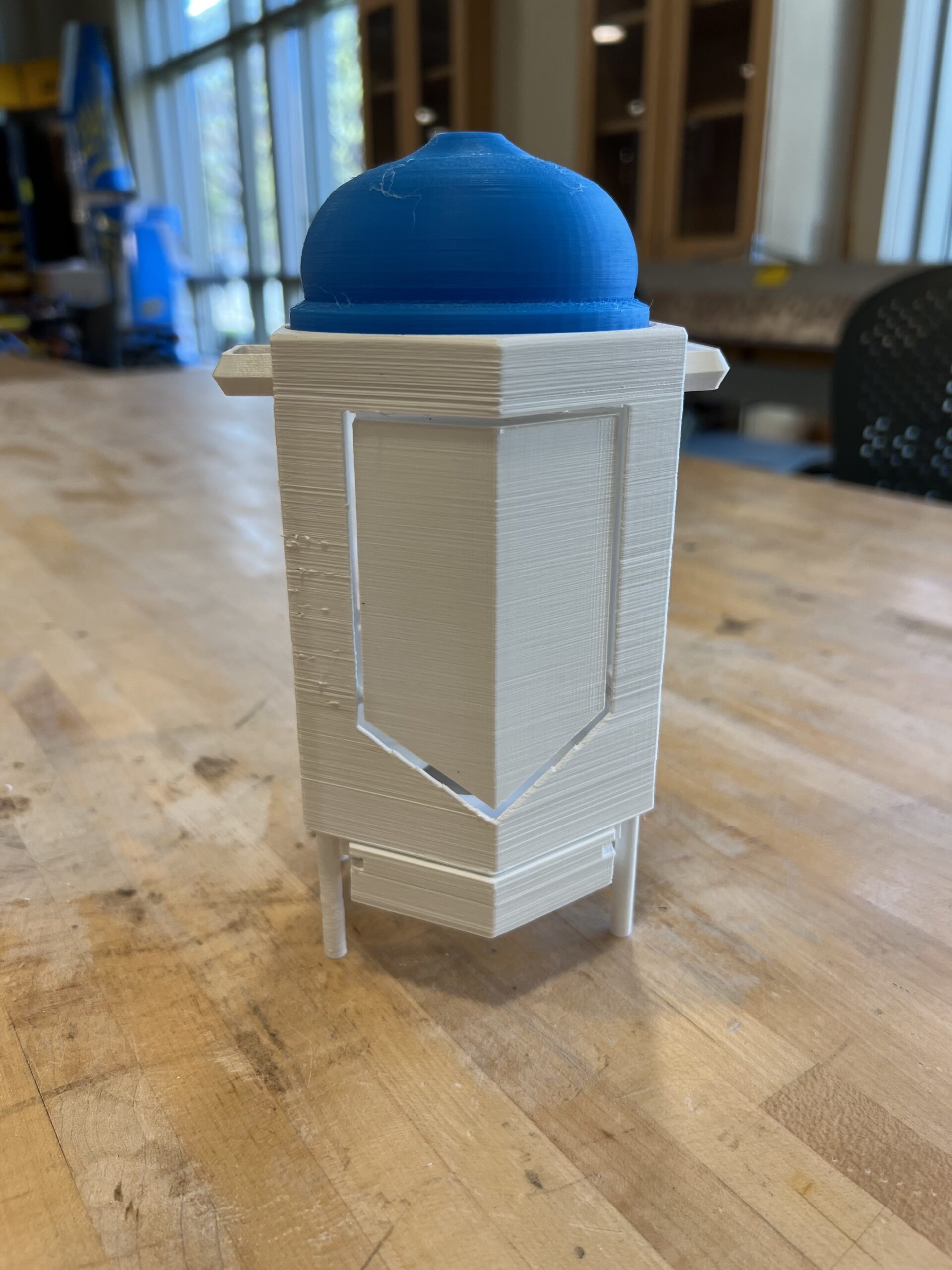
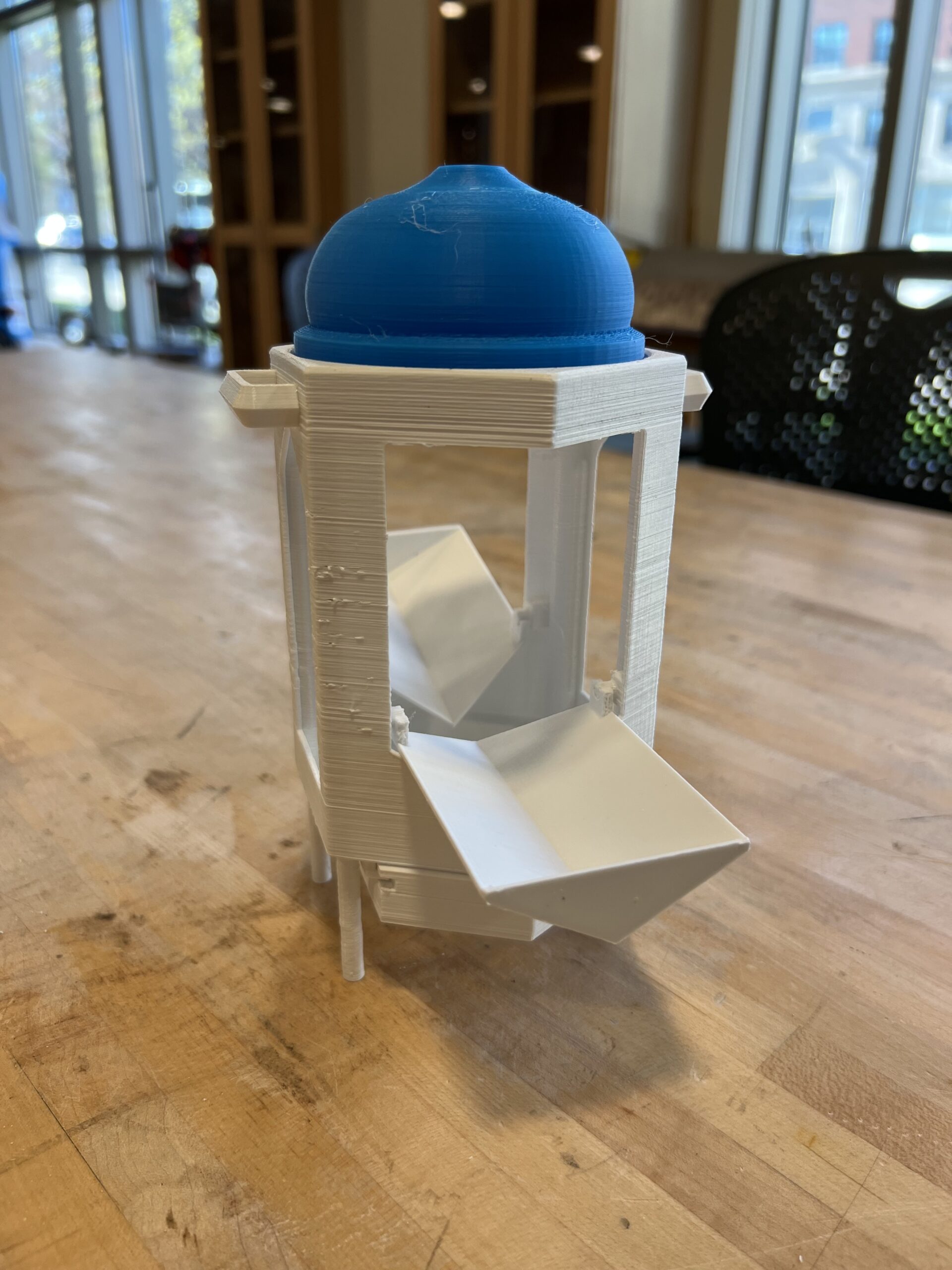
A miniature 3D rendering of what the Wudu You will look like once it is manufactured.
The 707 Hub, part of Marquette University’s Office of Research and Innovation, is a collaborative space open to all students, encouraging cross-disciplinary innovation, offering meeting spaces and fostering inspiration for making a difference.
“We applied because it would give us a sum of money to build the product. That was our main interest and just to try out since neither of us are business majors at all,” Mortada said. “We were given $2,500 from the Brewed Ideas Challenge and $2,500 from The Dorm Fund. We’re going to use this money to pay for our non-provisional patent license, as well as for the different items to manufacture our first products to test out.”
The Brewed Ideas Challenge, hosted by Marquette University’s Kohler Center for Entrepreneurship and Social Innovation Initiative in partnership with Brady Corporation, is an annual pitch competition to foster innovative ideas by providing seed money to Marquette students, recognizing and rewarding budding entrepreneurs.
The Dorm Fund is a venture capital firm operated by Marquette University students. This student-run organization invests in undergraduate-led companies, offering funding opportunities of up to $2,500 to fuel the growth of new ventures.
Mortada said they are currently working on finding companies to produce the product and hope to push it out after a few rounds of testing across college campuses.
Mortada said that her ultimate goal in Wudu You is to make college students feel comfortable and not face discomfort they may experience when making wudu in public. She hopes that Muslims will feel more belonging and safer when it comes to their Deen and hopes Muslims everywhere have access to making Wudu in an easy, comfortable and clean manner.
Wudu You has become an interfaith project, showcasing the importance of collaboration and understanding between different faiths. The team is proud of the inclusivity and diverse knowledge it brings.
“I’m proud of bringing attention to faculty and students’ struggles Muslims face when it comes to their Deen, their daily lives and prayer,” Mortada said.
Mortada said one of the best parts was working with Killian.
“I am proud of the fact that I am working with someone who isn’t Muslim and just cares so much. Jack is a really inspiring person since he shows so much passion for something he doesn’t know much about and wants to help,” Mortada said. “I think that’s amazing because it brings our communities together and different knowledge from all around. It truly has become an interfaith project.”
